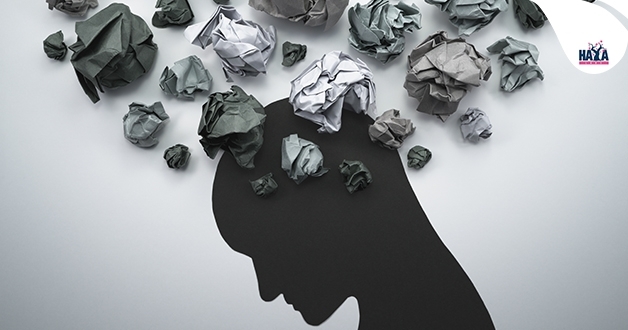
How to deal with health anxiety
0
1283
It is completely normal to worry about the implications of Covid-19 and how it affects the world, but if you are more prone to anxiety, it can easily get out of hand.
.jpg)
Health anxiety, formerly known as hypochondria, is an excessive and irrational worry that there is something seriously wrong with a person’s body. They misinterpret normal bodily sensations as dangerous and truly life threatening. Sometimes worrying can reach such unhealthy levels that it starts taking over the person’s life and daily commitments. They get agitated, irritable and unable to focus on other more important and pressing things like university, work and family commitments.
It might be tricky to diagnose health anxiety correctly, considering the state of the world at the moment as our daily lives have dramatically changed, but here are some symptoms that should be present for at least some time.
Symptoms:
- Stressing about your health all the time
- Checking your body often for anything out of the ordinary
- Worrying about the doctor missing something
- Looking for health information on the internet
- Avoiding any mention of serious illness
- Acting ill
Questioning yourself all the time and wondering whether you’ve not gone completely bonkers can be utterly exhausting. How come everyone else can just breeze through their life and you are stuck in your own messed up mind and can’t seem to make it work.
Fear not! It happens to the best of us and it’s nothing to be ashamed of. Sometimes our brains play tricks on us, alter reality, and make us fixate on the most random things ever! Here are some tips that can hopefully help alleviate some of the symptoms and make you feel more in control of your own thoughts.
Treatment:
Keep a diary
It might seem a bit old school, but keeping a strict diary might be extremely beneficial and provide a much needed emotional outlet. Note how often and how much time you spend checking your body, asking people for reassurance or searching for information on the internet.
After you’ve discovered a pattern you can start trying to consciously reduce the incidences.
Challenge your thoughts
This is one of the steps in cognitive-behavioural therapy that you can do on your own, without the supervision of a therapist. It is super simple and all you can do it both on paper and your laptop.
read more
Stop self-diagnosing
Look, Dr Google might seem knowledgeable and trustworthy, but he is most definitely not your friend when it comes to evidence-based information. It is extremely easy to open up a new page and get lost down a rabbit hole. Seeking reassurance and information on the internet might feel less intimidating and stressful, but nothing can beat talking to a real doctor face to face.
It is awfully tempting to jump to conclusions, imagine the worst-case scenario, and write yourself off. Your mind is playing its best tricks on you, but you shouldn’t listen to it. Trust logic and reason instead.
.jpg)
Cognitive-behavioural therapy
The most common therapy for treating health anxiety is cognitive-behavioural therapy which specialists consider very effective as it teaches practical skills to manage your own thoughts and worried mind.
The therapist will work with you to identify the specific stimuli that trigger your anxiety and teach you ways to challenge them. Raising awareness of how your thoughts have a direct effect on your behaviour is a key step in the process of learning to better manage your physical sensations.
Antidepressants
If nothing else helps and you are not responsive to psychotherapy alone, then antidepressants might be a good idea. The most commonly prescribed ones are selective serotonin reuptake inhibitors (SSRIs) which help manage the symptoms of your anxiety but might have small side effects nausea, indigestion, dry mouth or dizziness.
Despite being all in your imagination, health anxiety gets too real sometimes and can have detrimental effects on your daily life and social contacts. Always consult your doctor, weigh your options and don’t let it get out of hand. .






